Introduction TOOLKIT SERIES 3- By Dramaturg Suzanne Bell
”Theatre is like a gym for empathy. It’s where we can go to build up the muscles of compassion, to practice listening and understanding and…
Hello hello hello!

This week we’ll be looking at ‘collaboration’ and how writing a play is, inherently, a collaborative gesture.
Let’s start with the obvious. All playwrights are collaborative! Theatre, by its very definition, involves working with other people.
Even if you write, direct, star, design, print the posters and take the tickets at the door, you are still going need an audience and the relationship between performer and audience is, in itself, a wonderfully collaborative one.
So, if all plays by necessity, involve collaboration then, the question:
‘How can I be a ‘collaborative’ playwright?’ becomes a bit redundant.
The better questions to ask are, I suppose:
And, most importantly:
I don’t know the answer to any of these questions, which, frankly isn’t great when I’ve been asked to write a workshop on the subject.
Truth is, like most writers, I only occasionally write things that people actually want to work on. The rest of the time I seem to write things that people can’t ever imagine working on. It’s still very much guesswork from my end.
I am however, overjoyed, humbled and surprised on the odd occasion when somebody picks up something I’ve written, old or new, and thinks ‘YES. I want to spend some time thinking about this.’ Or even better, ‘YES. Let’s put together a team and make something out of this.’
A team! Isn’t that just the best thing in the world?
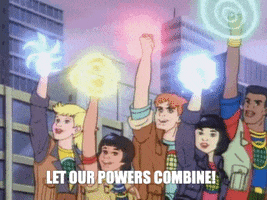
It’s always been my belief that the playtext is only the first step towards a ‘play’ or ‘performance’. It’s not a doctrine. It is a suggestion, an opening offer to other creatives to come together and interpret, make, experiment and perform. To collaborate.
I think this is because, now more than ever, I believe in other people.
We’re two years into a global pandemic, and I have barely set foot in a rehearsal room in that time. I don’t know what sort of collaborator I’ll be once I’m lucky enough to go back.
All I know is I miss working with other people. I really miss them. I miss their ideas. I miss their laughter. I miss their gossip. I miss their solidarity.
It’s reinforced to me how lonely it can be to be a playwright. How it can be an artform that involves long, frustrating periods of solitude, punctured by brief wonderful moments where suddenly you become part of a gang all working towards the same thing.
So what I would say to you, the writer reading this. Whenever you’re lucky enough to work with other people:
Make. The. Most. Of. Them.
Appreciate them. Respect them. Trust them. Because it’s, hands down, the best bit of the job.
I have nothing to dictate to you, nothing to teach you. I don’t think there’s any one way of being ‘collaborative’ with your writing. I think that word probably means vastly different things depending on who you are or what you believe in.
So instead, what I thought might be helpful is to write a series of provocations: things that you might, just might, want to think about if collaboration is something that you value as an artists.
Some of them are provocations for right now. Some of them, are provocations that might work better in the future. Some of them are feasible. Some of them are completely unfeasible. Many of them contradict each other.
Take your pick. Choose one, choose all of them, ignore all of them and do your own thing.
SOME PROVOCATIONS FOR ‘COLLABORATIVE’ PLAYWRITING
WRITE SOMETHING THAT INVOLVES OTHER PEOPLE EARLY IN THE PROCESS
I’ve always thought that if you let other voices into your idea early on, it will feel like a natural progression when you find yourself in a rehearsal room, surrounded by a company of people, all contributing. The sooner it feels like a team sport, the better, in my opinion.
When I was first starting out, I used to share everything I wrote as soon as I was ready. I chose who I shared it with carefully, of course, but I was much more comfortable pinging off an email saying ‘what do you think of this?’ with a draft attached. I figured the more people read it, the more people could help me make it the best it could be.
I’ve got more precious as I’ve got older (more easily embarrassed?), and I rarely share things until I think they’re ‘ready’. I think my writing is much worse because of it.
Start by talking to someone you trust (this is crucial) about your idea. Tell them what you think it’s about. Let them ask questions. (DON’T whatever you do, read too much into their reaction. I do this all the time: I tell someone an idea that I love, and when they don’t immediately say WOW THAT’S THE BEST IDEA EVER I throw it on the scrapheap.)
Much later, when you’re ready, and if they’re up for it, share a draft with this same person. Tell them to be nice: nothing is learnt from something being torn apart. You want to see what they respond to, what they don’t understand, what they’re excited to know more about, what images they walk away with.
Vitally, the groundwork will have been laid: they have already heard what you think the play’s about when you told them the idea. This will help them come to the writing on your terms, not their own, helping you move towards the thing you need it to be.
Their thoughts, whether you love them or ignore them, will automatically form a part of the play’s DNA. Just like that, it already has more than one parent.

WRITE SOMETHING THAT LEAVES SPACE
What I mean by this, is:
Don’t feel like you, the writer, have to fill the play to the brim with your own ideas. You don’t have to decide everything, you don’t have to explain everything, you don’t have to dictate everything the actors do, or that the design should entail. You don’t have to direct the show on the page.
The space you leave in the idea is where your collaborators can thrive. Try to give them as much as possible.

WRITE SOMETHING THAT EMPOWERS YOUR AUDIENCE
Collaboration is, primarily, about trusting in other people. That includes your audience
Try and remember that the imagination of everybody in audience is writing the play alongside you, every night. They are filling in every space you leave blank. A line, a tiny cue, a prop – these things can create whole worlds in the mind’s eye of an audience member in the space of a second.
I don’t need to know what Hamlet got up to in England, I don’t need to know who started the war in Far Away, I don’t need to know exactly what’s going on at the Flintock Fair during Jerusalem. Each of the writers has trusted the audience to fill in the blanks themself.
It is usually far more satisfying to have a hundred imaginations in the stalls all whirring in different directions, trying to figure out what happened between the central couple meeting in Scene Four and getting married in Scene Five, than it is to show every last moment of the relationship in between.
Instead, at the end of Scene Four you send them away on their own journey, giving them enough clues to fill in the blanks. You say ‘Have fun, run wild, and lets all meet back at the agreed meeting place where I’ll catch you up as quickly as I can’.

WRITE SOMETHING THAT ENCOURAGES OTHERS TO SHINE
There is no better feeling than watching a fellow artist reach new heights, especially when they’ve used something you’ve written as a starting point.
A good question to ask right from the start is: how will this let other people do their best work? How can I push my collaborators?
Some things you could think about when you’re writing your play:
How is this play a vehicle for a brilliant performance?
How is this play going to demand technical wizardry to pull off an unforgettable image?
How is this play going to encourage a director to use every last ounce of their imagination, craft and empathy to bring it to the stage?
How can I use my position of (relative) power to elevate the voices of others?
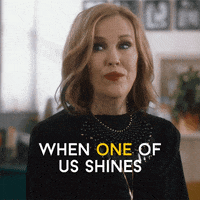
WRITE SOMETHING PEOPLE HAVE NO IDEA HOW TO STAGE
One of the ways in which I try and achieve the above, is to offer a theatrical challenge that I personally have no idea how to solve.
Great artists love a challenge. It’s in the solving of problems that people can be at their most imaginative.
When writing my play Parliament Square, throughout Act 3 I included the repeated stage direction: ‘The world gets worse’. When I was writing it, I had no idea what it meant. I had no idea how I would stage it, no idea what I wanted from it, no idea what the best way to execute it was. Good luck!
I think I’ve seen six productions so far. All of them have staged a different solution to this stage direction. All the solutions have been brilliant and unexpected. And all of them have felt like very different plays because of these solutions. It excites me so much, every time.
Some great ‘unstageable’ examples off the top of my head:
Sarah Kane’s ‘A sunflower bursts through the floor and grows above their heads ‘ from Cleansed
The ‘Parade’ scene in Caryl Churchill’s Far Away
The statue coming to life at the end of A Winter’s Tale
The twitter storm in Seven Methods of Killing Kylie Jenner
The lifting the chair moment in A View From The Bridge
Why not try and find at least one moment when writing your play where you stop, look at what you’ve written and think:
‘How the fuck are they going to do that?’
I guarantee you that moment will be the thing that most excites a director when they first pick up your play.

WRITE SOMETHING PEOPLE KNOW EXACTLY HOW TO STAGE
The alternative approach to the above is, of course, to write a script that can be so itself that it feels obvious to whoever reads it exactly how it should be performed.
It leaps off the page, the world appears fully formed inside a director/designer/actor/dramaturg’s head and all they can think about is bringing it to life. It becomes their mission to realise this world as you wrote it. To make it whole, so that people can walk around in it, can touch it, can laugh in it.
Think of it like the collaboration between an architect and an engineer.

WRITE SOMETHING FUN!
By this, I don’t necessarily mean that your play has to be funny, or lighthearted. Although it’s great if it’s both those things!
What I mean is something that lets people have FUN in their jobs.
It might be a play about serious subject, but that doesn’t mean it has to be a serious document, for serious people, that has to be taken seriously at all times. Think about how you encourage people to feel comfortable lightening up. To remember that they are playing.
It might be playful in the way that it uses language, or form, or style. It might have a little note or a letter at the front that encourages people to relax.
Think about setting the tone for the room, encouraging a sense of play and laughter among your colleagues. I think this is particularly important right now. People deserve to be able to smile while they work. Be a good collaborator, and encourage it.
WRITE SOMETHING THAT MEANS DIFFERENT THINGS TO DIFFERENT PEOPLE
Imagine two people picking up your play. A director and a designer, say. One of them is sure, sure, that your play is about childhood. The other is convinced, from the bottom of their heart, that the play is about death.
Those people, when they form a team that is going to work on the text, will have to meet somewhere. They will have to put aside at least some of their own personal reading of what the text is ‘doing’ or ‘saying’ and work together to find a new, shared meaning.
This is a wonderfully collaborative act. Encourage ambiguity! Steer away from certainty! Allow people to explore the mysterious middle!

WRITE SOMETHING THAT FEELS FINISHED BY THE FIRST DAY OF REHEARSAL
There is a power and a confidence in handing over your play and saying, ‘Here you go, the text is done, I’m finished, it’s yours now, have fun.’ I mean, dead writers do it all the time, and they get way more plays on than the rest of us.
Although, I would say this is an act that I think is most collaborative when you also say
‘The text is done, I’m finished – BUT you guys can change what you like.’
How comfortable you are with that, is up to you. (The dead don’t get a say sorry guys)
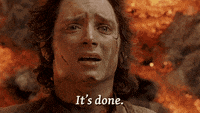
WRITE SOMETHING THAT FEELS UNFINISHED BY THE FIRST DAY OF REHEARSAL
Personally, I much prefer this way of thinking.
I kinda feel like (for the first production at least) all texts should go into rehearsal with somewhere like twenty to thirty percent of the play still to be written. It doesn’t make sense to me that so much work is done before the rest of the creative team gets their hands on it.
I’d love to pick up more new plays and get to a bit where it’s like:
‘SCENE SIX:
I have no idea what should happen here, perhaps we can figure it out together.’
As a director, that would excite me, because it’s a collaborative offer. I already know that this person who I’ve never met has some faith in me and my ideas. For every version of that play that’s ever produced, scene six might be completely different dependent on who is collaborating on the play. Wonderful!
I think there is a culture in the UK of over-drafting texts before they are allowed anywhere near a rehearsal room. This comes, like many things, from a lack of money. There is not nearly enough money, which means there is not enough rehearsal time, and without rehearsal time everybody wants the text that begins rehearsal to be BULLETPROOF.
The sort of approach I long for requires extra weeks of rehearsal, and the reality is in UK theatre you very rarely have that. Which is shit. But maybe that won’t change until we all start insisting on working in a different way. Who knows!

WRITE SOMETHING THAT YOU HAVEN’T EVEN STARTED BY THE FIRST DAY OF REHEARSAL
Go even further! What could be more collaborative than starting with a room, some brilliant people, a blank page and SOME TIME.
Who knows what you will leave with when it’s all over, but I bet it’ll be amazing. You will find ideas you would never have dreamt about, because they will have come from other people.
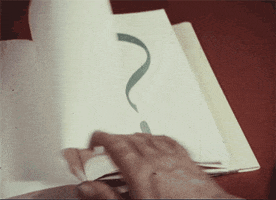
WRITE SOMETHING THAT PROPERLY CREDITS EVERYONE INVOLVED
There is a big question hanging over the more ‘collaborative’ ways of working I’ve mentioned above: how you credit your collaborators.
Basically:
Don’t be a vampire! Share the credit wherever you possibly can.
There have been more than enough ‘makers’ that call their company the ‘John Smith Company’ or whatever, encourage other to people to do most of the ‘making’ and ‘sharing’ – all in the spirit of collaboration, of course! – and at the end of the process go on to imply that the whole thing was by John Smith, auteur genius. It’s bullshit and dangerous and makes people feel like crap. It’s been going on for years and we all need to be better at acknowledging how many people it takes to ‘make’ a play.

And I’m a hypocrite. Of course I am. My name and my name alone sits on the front cover of all of my playtexts, which is bollocks. Each of those plays has the DNA of everyone who worked on it – in some cases, there are structural changes and rewrites and lines that I would never have come up with in a million years by myself.
The very least you can do is properly credit your dramaturgs in your playtext (there may not be an official ‘dramaturg’ but I can bet that at least someone, most probably the director, has done serious note-giving). In fact, properly credit everyone you possibly can. And if the work has really been ‘co-created’, be honest and make sure the whole world knows about it.
This is partly because it’s only fair, and partly so that every new writer picking up your play will know that you didn’t have to do it all alone, which means that they don’t have to do it all alone either.
WRITE SOMETHING FOR ONE VERY SPECIAL COLLABORATOR
It can be so easy, when you’re writing, to spend too much time in your own head. So much time thinking ‘What do I think should happen, what do I want the scene to feel like.’
Novelists will often write with the idea of the ‘perfect reader’ in mind. If they can write their story to entertain one person, imagined or real, then it follows that the other readers might like it as well.
Sit down and think of a brilliant collaborator for your play. It could be an actor or a director you’d love to work with. It could be a close friend or someone you admire.
Start thinking about your play as a gift, to them, to work on. See what it does to the choices you make when you start thinking about your writing not as a vehicle for your ideas, but for the talents of someone else.

WRITE SOMETHING FOR A HUNDRED THOUSAND COLLABORATORS
There is the potential in every play ever written for multiple lives. To be re-interpreted again night after night. To be re-interpreted again, year after year, in different venues, different countries, different languages, different mediums.
When you start writing something, you don’t know if anyone will ever read it. If you get as far as someone reading it, you don’t know if anyone will ever read it out loud. If you get as far as people reading it out loud, you don’t know if it will ever make it into a rehearsal room. If it makes it into a rehearsal room, you don’t know if it will ever make it into production. If it makes it into production, you have no idea who the company is going to be. If you find a wonderful company, you don’t know if anyone will ever pick up the play and want to do it a second time. If somebody does put it on a second time, you have no idea if there will ever be a third. And so on and so on
You have no idea how many people will come across your work and be inspired to make something of their own, so write for them all, from the person who gets emailed the very first draft, to the person you’ve never met a hundred years from now who reads your play and thinks to themselves,
‘I can’t wait to put this on’.
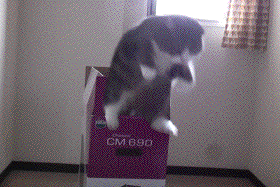
WRITE SOMETHING THAT ACTIVELY ENCOURAGES CHOICE
Good news is you’re already doing this one. Well done! Every play contains infinite possibilities, and possibilities demand choices. How do I say this line? How should I stage this scene? Etc and so on.
But why not write something that leans into this, and does it explicitly in the text.
You could include optional scenes. Optional lines. Three different endings. Infinite running orders for the scenes. Characters that only appear in every third performance. Four different titles.
Embracing choice in your text tells your collaborators that you trust them to make choices about the whole of your text and not just the composite parts.
Caryl Churchill’s Love and Information and Alice Birch’s [BLANK] both do this sort of thing brilliantly, if you’re interested.

WRITE SOMETHING THAT DOESN’T GIVE UP ITS SECRETS TOO EASILY
Rehearsal processes can be a little like archaeological digs. You start with a shadow of something, a rough shape buried deep beneath the ground, and as a team you start, very gently, brushing the soil away.
Some plays, however, are happy to show the whole skeleton right up front. They say, here, look, it’s a dinosaur! Can’t you see! IT’S A DINOSAUR!
There’s no fun in that. Bury the dinosaur. Encourage the digging. The digging’s the best part. Trust that your collaborators will get there. Leave little secrets that may never be uncovered. Lines you’ve written for a specific reason. Words you’ve chosen that seem out of place, but you know they’re not. Links you’ve made between scenes or moments. Don’t explain away everything on day one.
The process of discovery is one of the joys of rehearsal. The brilliant moment when a revelation clicks into place is a gift to your collaborators. Don’t take it away from them.

WRITE SOMETHING THAT ISN’T SHITTY TO PEOPLE
It can be so hard to remember this, when you are in the throes of writing, and your imagination is running wild, but your choices have real-world consequences.
Of course, your characters aren’t real. The things that they do don’t really happen.
But so much of theatre IS real. There are real bodies on stage. There are real people doing and saying real things to each other.
Pay special attention to what you are putting your performers through. Do you really need them to spit in each other’s faces, or be naked in this scene? Is there another way you could achieve this without telling real-life human beings to do real-life difficult things to each other? Think about the subject matter. About how it might affect people in the room who have to go through it again and again and again.
Performers are not your rag dolls. Collaborators are not automatons. They have to go home at the end of every day, just like you. They have to come back into their workplace the next morning.
Am I saying you can’t write knotty or difficult scenes, or write about potentially traumatic subject matter? Of course not. I’m just saying that if you do, make sure it’s for a really good reason. Make sure you lay the groundwork. Make sure you earn those moments and you earn the trust of the people that have to research them, stage them, perform them and watch them again and again and again.
‘Because the script says so’ is not a reason that anyone should have to do anything, ever.
WRITE SOMETHING THAT IMAGINES – AND REIMAGINES – THE FUTURE
The best gift you could give to collaborators right now, I think, is to write something that engages with the terrifying future we’re facing and dares to rethink it.
I’ve tried several times to articulate what I mean by this, but I keep coming back to an essay written on this very website by the brilliant artist Anthony Simpson-Pike. In the spirit of collaboration, I think I should let him make the point better than I ever could:
‘Today, every story is told in the context of the climate emergency whether we face it head on or not. Nothing is made outside of that context. I think if we were asked to hypothetically imagine what people who lived in a society that had 9 years left to transform or implode would do with that time, we would come up with something very different from what’s actually happening. Because stories make the world, and don’t just describe it, all art is political. How we tell stories, as well as which stories we tell, matters. Each story told is a choice not to tell another, that’s inevitable. But if stories genuinely matter, how can we tell stories of and in the way we’d like to live life? What if theatres could be imagination centres, breaking open the single story of how life can be organised? What if we could imagine different futures and rehearse them now? Show they’re possible. Defeat the single story.
I find myself coming back to this thought all the time.
Read the whole of Anthony’s incredible essay here: https://www.writeaplay.co.uk/draft-toolkit-series-2-anthony/
Digest it, contemplate it and then think about how it might change the way you want to collaborate in the future.
That feels like more than enough for now. Well done if you got this far!
If you’re writing a new play, I’m really jealous. All the best bits are still ahead of you. There are so many things that you still don’t know about what you’re writing. You don’t know where it will be performed, or when, or how it will feel sitting in the audience for the first time.
But the best surprise that awaits you, is who will get to make it with you.
You probably haven’t met most – or any – of them yet, but they will become colleagues, co-conspirators and teammates. In some cases they might become lifelong friends. That line you’ve just written might be the catalyst for one of the defining relationships of your life. You never know.
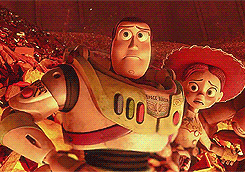
Theatre is all about other people, and other people, more often than not, are brilliant. You just have to give them the chance.
Cheers, take care of each other.
James.
James Fritz is a writer from South London, whose plays for stage and radio include Four Minutes Twelve Seconds, Parliament Square, Ross & Rachel, Start Swimming, The Fall, Comment Is Free, Death of A Cosmonaut, Lava and Eight Point Nine Nine. He has won the Critics Circle Theatre Award for Most Promising Playwright, a Bruntwood Prize for Playwriting, a Radio Academy Award and the Imison and Tinniswood BBC Audio Drama Awards, the first time a writer has won both in the same year. He has also been nominated for an Olivier Award for Outstanding Achievement in an Affiliate Theatre, a BBC Radio Award for Best Single Drama, and was named runner-up in the 2013 Verity Bargate Award.
Comments
Add comment